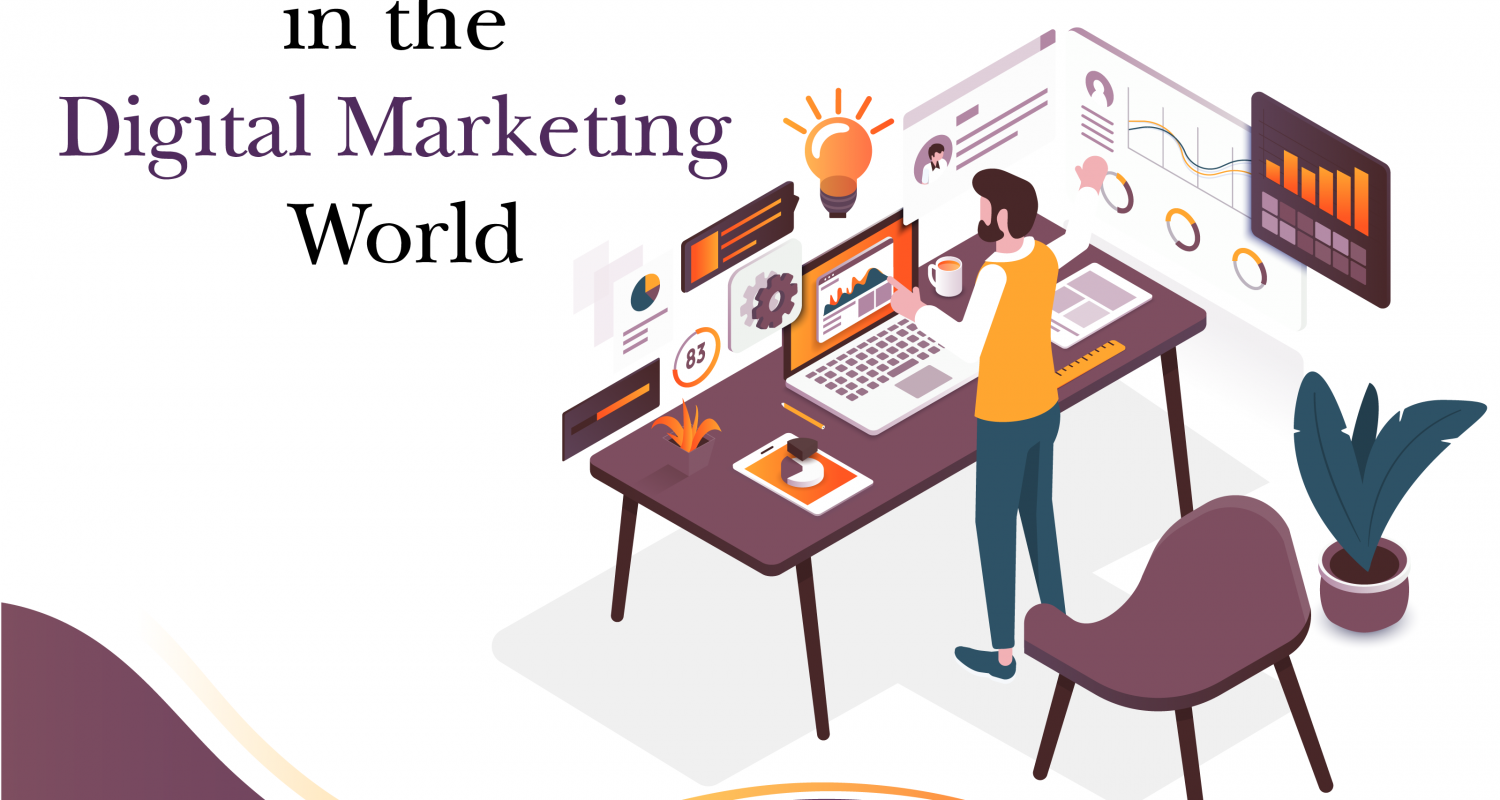Goodbye and good riddance to 2020. The global pandemic had an impact on every business. From a digital marketing standpoint, what will 2021 bring? Several digital marketing leaders shared their thoughts on coming trends. The year 2020 has seen brands and the marketers stumbling to survive the unpredictable events that have been unfolding. Digital marketing has become a boon for companies despite these uncertain times. While the digital age had already started changing lives across industries and various verticals, the current year mainly saw it grow exponentially.
The year 2020 has a lot of marketers scrambling to keep up. It’s a year like no other, really, with current events dramatically shaping digital marketing trends. Unless you’ve been living under a rock—or Norway, maybe—this laundry list should sound familiar: socio-political turmoil, including mass protests, violent street clashes, and an upcoming election; a cooling U.S. economy; destructive wildfires and unpredictable weather phenomena; and of course, our old, pugnacious nemesis, COVID-19.
The reason these developments so directly affect marketers is all the, ahem, unprecedented uncertainty they create. Who knows, for example, what social media advertising costs will look like a week, month, or year from now? And who can predict how long the eCommerce “boom” will last, especially when we don’t know when the world will get the green light to return to normal?
2021 Digital Marketing Trends
The good news is that it’s not all doom and gloom. And many organizations are cautiously optimistic about the future. In light of all the craziness, we thought we’d put together our predictions for the coming year in digital marketing trends. Having spent most of 2020 right in the thick of it, helping clients in industries like law, education, and healthcare navigate these turbulent times, we’ve got some ideas about the direction things will take in a few key areas of marketing.
While there are certainly new trends and technology to account for, what you’ll by and large find is that a lot of these marketing strategies and trends aren’t necessarily new, but they’re evolving in notable ways that should inform your outlook going forward.
We’re about to embark on a comprehensive survey that examines how digital marketing is evolving in 2021. If you want to jump to a specific trends section, use the list below
-
Social Media Marketing (SMM)
-
Conversion Rate Optimization (CRO)
-
Paid Social
-
Conclusion
Search Engine Optimization (SEO): SEO is always a moving target in digital marketing because search algorithms are constantly evolving. That regular flux certainly won’t change in 2021. But we have noticed certain trends that promise to be a lot more than just “flash in the pan” changes.
That’s not to say things like COVID-19 won’t have lasting effects on SEO digital marketing (just look at Google coronavirus search trends for 2020). But there are far more fundamental changes that will impact the world of SEO in the near to long term. So we’ve earmarked the five SEO trends we think will matter most come 2021.
Social Media Marketing (SMM): In digital marketing social media is its own ball of wax, isn’t it? The nuance, controversy, and ever-shifting demand that we as marketers have come to know and love only intensified in 2020. The need to adapt quickly and precisely is as urgent as ever, especially as new and powerful channels emerge.
In reviewing our own social media strategies with clients, a few common themes continue to crop up as we look to 2021. Here are the four focus areas that we’ll be prioritizing as we build out and monitor new campaigns and expand into new channels.
Conversion Rate Optimization (CRO): Conversion rate optimization is a digital marketing optimization process that follows a framework to increase the percentage of visitors who complete a website’s goal. Conversion optimization analyses the behaviour of visitors and focuses on what motivates a particular market segment to engage in a certain way with specific marketing elements. Conversion Rate Optimization is focused on persuading more of your website visitors to take the desired action you want them to take on a webpage, website or within a campaign.
Video Marketing: Video is going off. To say we’re in the golden era of video would be an understatement, especially when there seems to be no end to the new formats, innovation, and audience engagement techniques out there. In terms of audience, the stats are kind of wild.
Video marketing can increase your search engine ranking, click-through rates, open rates and conversions. But you have to reach your target audience. YouTube is the second largest search engine (second to Google). What’s better: YouTube is owned by Google. So that means a properly tagged video can work wonders for your SEO.
Email Marketing: As we have seen with the marketing trends we’ve covered up to this point, necessity really is the great motivator. As marketers strategize for the year to come—one sure to be fraught with all kinds of uncertainty and upheaval—they need to focus on getting the most out of their core marketing activities.
It might be premature to call email marketing pandemic-proof; it’s safe to say that it will remain a part of your 2021 marketing strategy. At least it ought to. So here are a couple of email marketing trends to keep in mind as you build out your email strategy for the coming year.
-
Email Nurturing Will Shift to Omnichannel Marketing
-
Email Marketing Automation Will Expand and Intensify
-
Email Investments Will Likely Increase
Pay-Per-Click Advertising: First, the good news: pay-per-click (PPC) advertising isn’t going anywhere in 2021. If anything, highly targeted, highly efficient PPC campaigns will be even more important to digital marketers. How marketers execute targeted and efficient PPC campaigns, however, might look a little different.
As you build out your 2021 PPC strategy, remember that businesses still get approx $2 return for every $1 they spend on Google Ads according to Google Economic Impact. While the underlying reasons and trends are many—and not without their fair share of debate—few disagree that PPC can be very effective.
To that end, we’ve narrowed the focus to three PPC trends sure to make waves this coming year.
-
PPC Automation and AI Will Continue to Dominate Trends
-
Responsive Search Ads (RSAs ) Become the Default
-
Privacy Concerns and Limited Data Availability
Paid Social: As trends and consumer behaviour in social media go in 2021, so goes paid social advertising. What we do know is that paid social continues to experience huge growth and upside. The analysts at Statista predict that social media spending will eclipse $113 million in 2021, with average ad spend per internet user surpassing $23.
Why are businesses so eager to commit marketing budgets to paid social campaigns? Paid social works, first of all. It can be highly targeted. And new ways to reach consumers, such as Messenger, as well as integrated authentication and payment options, will provide for some exciting opportunities to innovate and improve return. We mentioned below few paid social examples:
Instagram Ads
LinkedIn Ads
About the author:
Summary
Omnichannel marketing is a great place to close this article on 2021 digital marketing trends because Omnichannel marketing captures what we think will be the guiding high-level trend in 2021 and beyond: putting people at the centre of everything you do.
As with any year, 2021 will have us digital marketers knee-deep in all kinds of strategies, tactics, and technologies. And of course, there will always be new trends and external market conditions to keep place with. But the success of it all will really boil down to how well we treat people—how well we’re able to empathize, recognize, and serve their needs. When a brand incorporates empathy into its marketing strategies, what it’s doing is validating its customer base. The more validated a customer feels, the deeper a relationship that the customer will build with the brand. In the end, I would like to say that if you like my post, feel to free comment in comment session box. Thank you.





